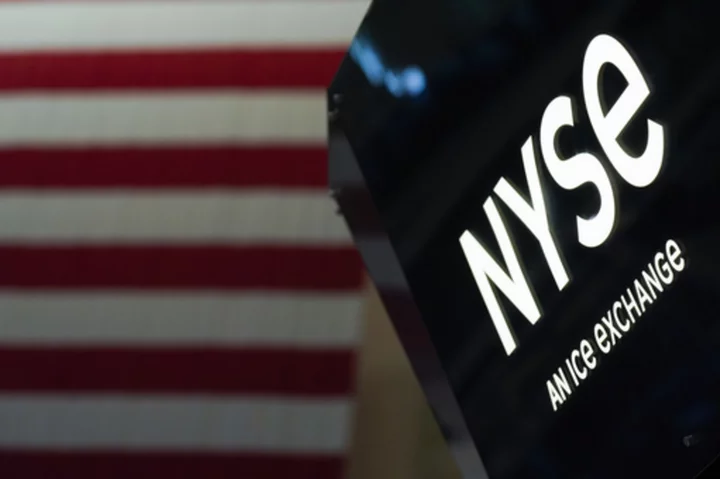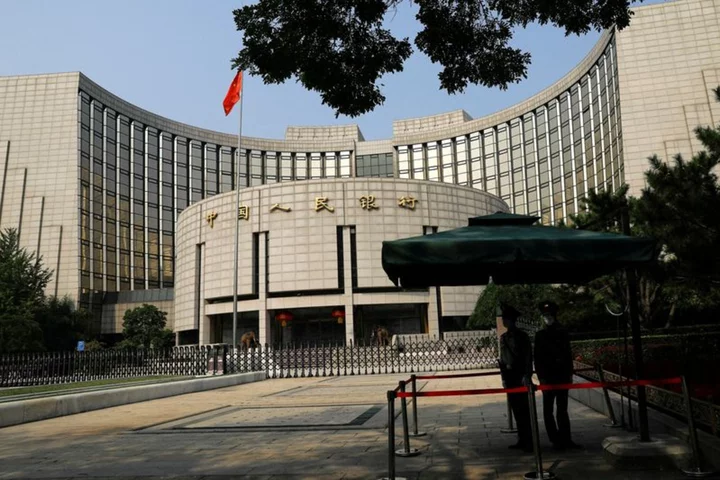Wall Street headed lower for a second day and markets in Europe and Asia fell as well with U.S. Treasury Secretary Janet Yellen in China Thursday attempting to lower tensions between the world's two largest economies.
Futures for the S&P 500 and the Dow Jones Industrial Average lost 0.5%.
Share prices have soared recently with more evidence that the U.S. economy is churning along, fending off recession so far despite high interest rates. A hot economy is not what the Federal Reserve needs right now in its fight against inflation.
Minutes from the Federal Reserve’s latest policy meeting released Wednesday showed that some central bank officials wanted to raise rates in mid-June, though in the end they voted unanimously to keep rates steady. The threat of further rate hikes has been weighing on investor sentiment.
One area the Fed is watching closely is the U.S. jobs landscape.
The Labor Department releases weekly jobs numbers Thursday, along with a report on job openings, and on Friday it will post critical monthly jobs data.
Meta Platforms, parent company of Facebook, Instagram and WhatsApp, rose 1.9% after unveiling its new app Threads, a rival to Twitter, which has had a bumpy ride under new owner Elon Musk. Meta shares already more than doubled this year.
Hong Kong’s Hang Seng index dropped 3% to 18,533.05, partly due to heavy selling of Chinese banks shares after Goldman Sachs downgraded them, citing concerns about the slowing economy and lenders’ exposures to debt. The Shanghai Composite index declined 0.5% to 3,205.57.
Hong Kong-traded shares in the China Construction Bank Corp. lost 2.8%; China Merchants Bank dropped 1.4% and the Industrial and Commercial Bank of China sank 3.2%.
Japan’s Nikkei 225 lost 1.7%, closing at 32,773.02. In Australia, the S&P/ASX 200 dropped 1.3% to 7,157.80 and the Kospi in Seoul lost 1.1% to 2,551.10. India's Sensex gained 0.3%, while shares fell in 1.7% Taiwan and 1.1% in Bangkok.
The CAC 40 in Paris gave up 1.8% at midday, while Germany’s DAX and Britain’s FTSE 100 each declined 1.2%.
Hope is rising that inflation is cooling enough to get the Federal Reserve to soon stop its hikes to rates, which undercut inflation by slowing the entire economy. Much of Wall Street expects the Fed to raise rates later this month and perhaps once more later this year, as the Fed has been hinting.
That could leave the U.S. stock market stuck in a holding pattern as everyone waits to see if a long-predicted recession does happen or not. The upcoming earnings reporting season could offer some clues, with companies telling investors how much profit they earned during the spring.
Yields were mixed in the bond market. The yield on the 10-year Treasury rose to 3.97% from 3.94% Tuesday. The 10-year yield helps set rates for mortgages and other important loans.
The two-year Treasury yield, which moves more on expectations for the Fed, inched up to 4.96% from 4.95%.
In other trading, U.S. benchmark crude oil rose 30 cents to $72.09 a barrel in electronic trading on the New York Mercantile Exchange. On Wednesday it gained $2 a gallon to $71.79 a barrel.
Brent crude, the pricing basis for international trading, advanced 22 cents to $76.87 a barrel.
The dollar fell to 143.74 Japanese yen from 144.64 yen. The euro edged up to $1.0896 from $1.0857.
On Wednesday, the S&P 500 slipped 0.2% edging down from its highest level since April 2022. The Dow fell 0.4% and the Nasdaq gave back 0.2%.
——
Kurtenbach reported from Bangkok; Ott reported from Silver Spring, Md.









